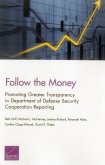It has been alleged that pirates and maritime terrorists present a largely common threat to international maritime security. This book drives to the heart of this proposal by reviewing in detail each phenomenon before asking how and under what circumstances pirates and maritime terrorists might combine forces. Murphy concludes that while piracy may be a marginal problem in itself, the connections between organised piracy, wider criminal networks and corruption on land on mean that it may undermine states and destabilise the regions in which it occurs. Furthermore, maritime criminality may disguise insurgent and terrorist activity and allow such actors greater freedom of manoeuvre. He contends also that many of the factors that encourage piracy and maritime terrorism overlap and moreover that these may also encourage and sustain the more generalised issue of maritime disorder that embraces a wide range of illegal activity. In this context Murphy suggests that maritime terrorism, although only a low-level threat currently, has the potential to spread and become more effective in the event of political change on land. Before this can happen, however, maritime terrorists and insurgents will have to overcome significant operational and technical problems and, above all, find a means of triggering a level of fear stemming from atrocities committed at sea similar to that resulting from attacks perpetrated on land if they are to achieve their political objectives.
Bitte wählen Sie Ihr Anliegen aus.
Rechnungen
Retourenschein anfordern
Bestellstatus
Storno







